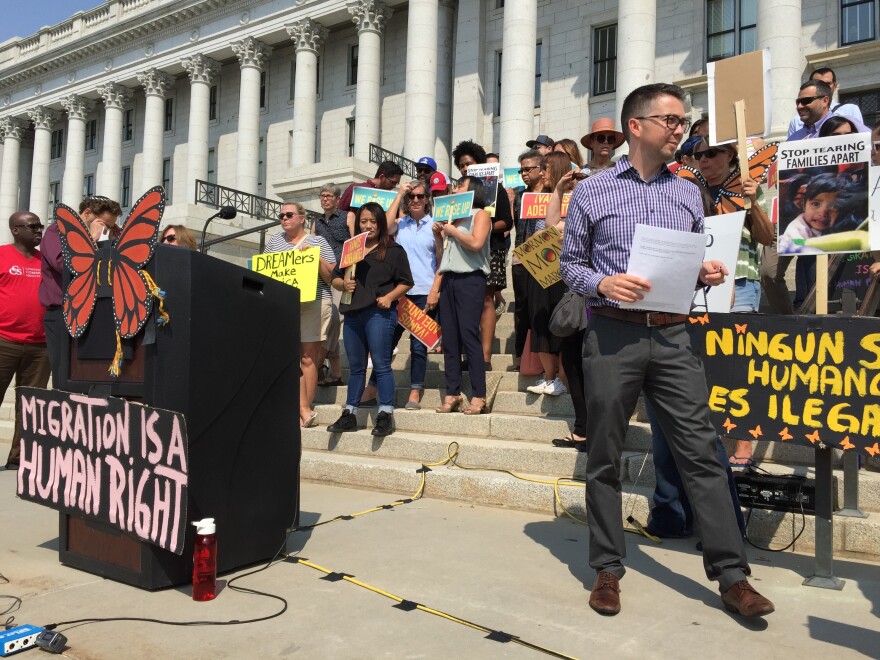This week, the Utah Supreme Court takes on the question of whether immigrants who came to the United States illegally can work as lawyers in the state.
Tuesday, the Utah chapter of the American Civil Liberties Union, along with several other organizations, submitted a brief supporting a lawsuit by two immigrants who entered the country illegally as children, asking to be admitted to the Utah State Bar.
The two plaintiffs in the case, Jane and Mary Doe, grew up in the U.S. and graduated from law school in Utah. Then they passed the Bar in California where immigrants living in the U.S. without documentation are allowed to practice, despite their status. Now, the two women want to practice in Utah, where they live.
“They pay taxes and they live exemplary lives. And so, what we’re arguing is that there is no good reason to prevent them from practicing their profession in Utah,” said Spencer Amdur, a staff attorney with the San Francisco based ACLU Immigrants Rights Project.
The ACLU was among about a dozen institutions and law firms submitting amicus briefs in the case.
In its brief, the civil rights organization argues that the state Constitution allows the court to make the change.
“The Utah Constitution empowers this Court to regulate the practice of law in Utah, including bar admission,” the attorney writes. “It also prohibits any other branch of Utah government from regulating the practice of law, both to ensure judicial independence and to protect the integrity of judicial proceedings. … Federal law allows this Court to exercise its authority in this case.”
Several other states, in addition to California, permit recipients of the Obama-era Deferred Action for Childhood Arrivals policy, or DACA, to practice law.
“Eight different states have already decided that there’s no good reason to exclude DREAMers and other undocumented immigrants from being able to practice law,” said Amdur.
New York, Pennsylvania, California, Florida, Illinois, Nebraska, Wyoming, and New Jersey now allow Immigrants who entered the country illegally to practice law.
In the petition on behalf of the two immigrants, their attorney argues that “Undocumented status does not conflict with an individual’s ability to take and uphold Utah’s oath of honesty, fidelity, professionalism and civility or promise to uphold the Utah and United States Constitution.”
The Court asked the ACLU to submit a brief on the question, along with the Utah and U.S. Attorney Generals and the Utah Legislature. Several other groups also submitted briefs, including the law school at the University of Utah.
Editor's Note: KUER receives funding from the University of Utah, which also holds the station's broadcast license.


